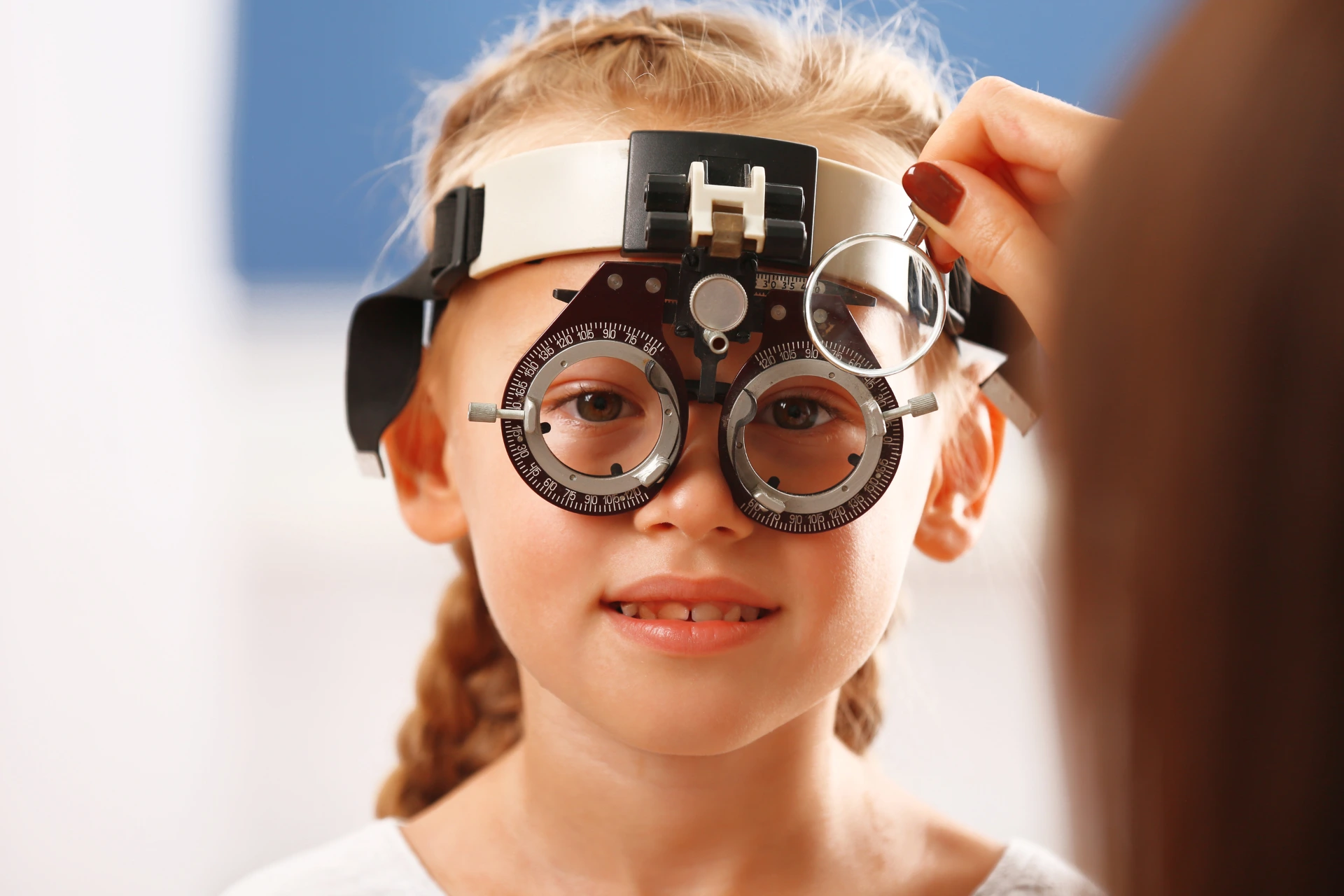Home > Service Detail
Eyesight is precious for all human beings. Children are no exception. A healthy eye helps one better understand the world around them.

It inspires them to build a more promising future and have a positive outlook towards life. However, the little ones also suffer from various eye problems.
Adults should not neglect their little one’s eye health and ensure regular checkups to have overall healthy eyesight. Pediatric ophthalmology caters to every child’s eye health and ensures their eyes shine brightly, just like their future.
Children suffer from various eye conditions. They may suffer from pediatric cataracts, refractive errors, or improper development of eye sights. Sudden eye injuries or genetic factors may also cause significant damage to the eyes. The goal of pediatric ophthalmology is two-fold. Firstly, it is to take optimum care of children’s eyes and make children and their parents understand the importance of regular eye checkups.
The eye is a sensitive region. Eye problems in children imposes a lot of challenges in their life. They find it difficult to excel academically and also battle through continuous ups and downs in daily life. Pediatric ophthalmologists diagnose eye conditions and find suitable treatments to cure eye problems. At Shruta Eye Care, our team of experienced professionals ensures comprehensive eye-care services for children so that they have a comfortable experience at our clinic.
Children will show various signs if they are having eye problems. They may continuously rub their eyes; their eyes may become red, or they may find it difficult to see objects. If your child complains of any such problems, immediately take your little one to a pediatric ophthalmologist for an eye examination.
Eye checkups for children should start around the age of 6 months, as recommended by the American Academy of Ophthalmology. The next session should be around 3 years. If children experience any eye problem, they must be taken to a pediatric ophthalmologist, irrespective of their age.
Mobile phones not only damage the eyes but also affect overall health. Replace mobile phones with storybooks. Also, encourage them to take up physical activities in their free time to reduce addiction to mobile phones.
There can be a number of causes of eye problems in children. Vision errors, problems in the development of eye sights, hereditary factors, sudden eye injury, or too much exposure of the eyes to screen time can lead to eye problems.
Excessive exposure to screen time may lead to damaged eyesight for the little ones. Make them practice the 20-20-20 rule, i.e., look at something that is 20 feet away for 20 seconds after every 20 minutes looking at a screen to protect the eyes from damage.
If there is a sudden eye injury, the first step is to remain calm. Elders and caregivers shouldn’t panic. Take your child to the nearest eye clinic to seek immediate professional help.
If other children in the class can see the blackboard and copy class work, but your child can’t, it may imply that your child is having eye problems. Take your child to a pediatric ophthalmologist for diagnosis and eye examination at the earliest.
Color blindness is hereditary and may be seen in children. Color vision testing is done to ensure the level and intensity of color blindness in a child.
Amblyopia, also known as ‘lazy eyes,’ is a condition where one or both eyes have poor vision. Glasses or other techniques are used to develop weaker eyesight.
Eating nutrient-rich foods, eye exercises, and not exposing the eyes to excessive screen time are some habits that can keep children’s eyesight strong and healthy.
Stay connected with the latest advancements in eye care and receive exclusive insights by subscribing to our informative newsletter
Reach out for meticulous eye care tailored to your needs
Copyright © 2022. All rights reserved by shrutaeyecare